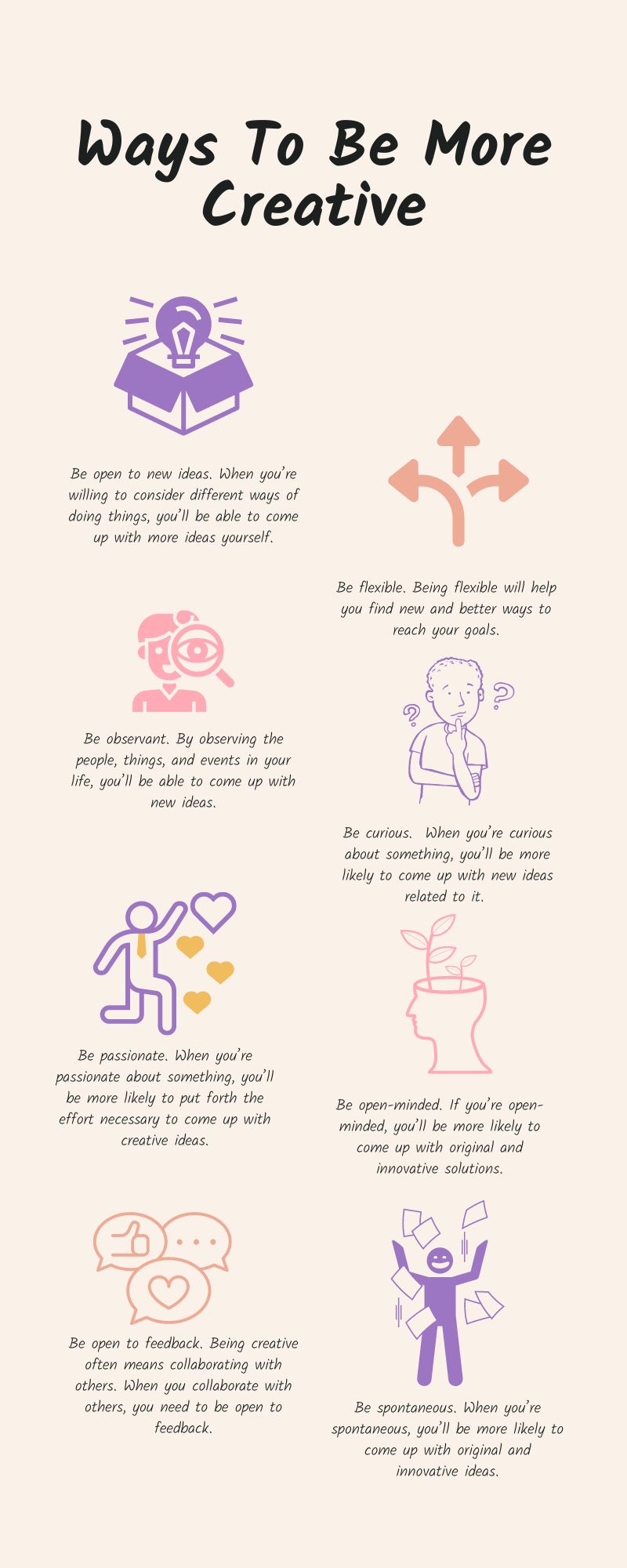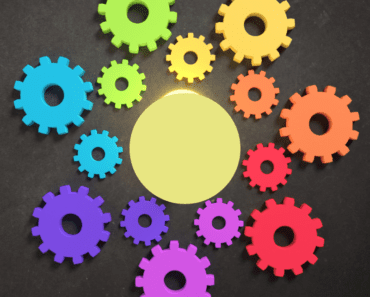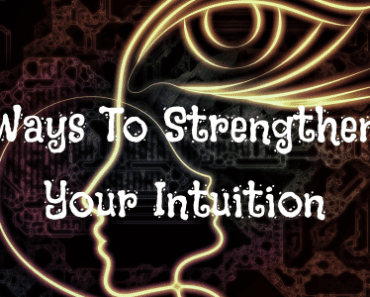Last Updated on July 28, 2022 by Subject Of Life
In order to be more creative in your life, you don’t need to have an innate gift or be born under a lucky star. You just need to be willing to try new things and break free from the mold that’s been created for you. Ready to be more creative?
18 Ways To Add More Creativity Into Your Life Starting Now

1. Be Open To New Ideas
Being open to new ideas is one of the most important things you can do to be more creative. When you’re willing to consider different ways of doing things, you’ll be able to come up with more ideas yourself. If you’re always closed off to new possibilities, you’ll quickly run out of ideas.
How To Be Open To New Ideas
It can be easy to get stuck in our ways, especially as we get older. We may find that we are resistant to change and that we hold on to our existing beliefs even when presented with new evidence. However, it is important to be open to new ideas if we want to continue growing and learning.
One way to become more open-minded is to seek out exposure to new viewpoints. Reading books or articles from a variety of perspectives can help us to understand different points of view.
Additionally, listening openly and without judgment to others who hold different opinions can also help us to expand our own thinking.
By making a conscious effort to seek out new ideas, we can become more open-minded and learn more about the world around us.
2. Be Willing To Take Risks
If you want to be more creative, you have to be willing to take risks. It’s only by taking risks that you can find new and interesting ideas. So don’t be afraid to experiment, even if it doesn’t always work out.
How To Take More Risks
Start by doing some research and planning ahead. Think about what you want to achieve and what the potential risks are.
Then, take small risks at first and gradually work your way up to bigger risks.
Remember, there is always some element of risk involved in any decision, but that doesn’t mean you shouldn’t take chances. Embrace the unknown and see what amazing things happen as a result.
3. Be Persistent
Creativity often requires persistence. This means not giving up when you don’t immediately find the right solution. It can take time to come up with a good idea, so keep working on it until you find something that works.
How To Be More Persistent
Pursuing creativity can often feel like a bit of a balancing act. On the one hand, you need to be open to new ideas and ways of thinking. But on the other hand, you also need to be persistent enough to see your projects through to the end. So, how can you strike the right balance? Here are a few tips:
First, set realistic goals for yourself. It can be tempting to try to bite off more than you can chew when you’re first starting out, but it’s important to start with achievable objectives. Once you’ve mastered those, you can move on to more ambitious endeavors.
Second, stay organized and focused. It’s easy to get sidetracked when working on creative projects, so it’s important to have a clear plan in mind and know what your next steps are. This will help you stay on track and make progress even when things get tough.
Finally, don’t be afraid of failure. Pursuing creativity means taking risks, and not every risk will pay off. But if you’re not willing to take some chances, you’ll never achieve anything truly great. So embrace your mistakes, learn from them, and keep moving forward.
4. Be Patient To Be More Creative
Similar to persistence, being patient is also important for creativity. This means not rushing the process and giving yourself time to explore different possibilities. If you’re patient, you’ll eventually find an idea that you’re really happy with.
How To Be More Patient For Creativity
We all know how frustrating it can be when we’re trying to be creative and nothing seems to be coming together. It’s easy to get impatient, especially when we feel like we’re on a deadline. However, studies have shown that rushing the creative process can actually lead to poorer results. So how can we be more patient when we’re trying to be creative?
One useful tip is to set aside some dedicated time for creativity each day. Whether it’s 15 minutes or 2 hours, making sure that you have some uninterrupted time to focus on your project can make a big difference. During this time, try to silence your inner critic and simply allow your ideas to flow.
Also, remember that creativity often requires trial and error. Don’t expect everything to come together perfectly on the first try. Be patient with yourself and allow yourself the freedom to experiment. With a little persistence, you’ll eventually find the creative solution that you’re looking for.
5. Be Flexible
Flexibility is another important quality for creativity. This means being willing to change your plans if necessary. If something isn’t working, don’t be afraid to adjust your approach. Being flexible will help you find new and better ways to reach your goals.
How To Be More Flexible For Creativity
Many people associate creativity with artistic endeavors like painting or sculpting. However, creativity is about much more than just art. It’s about looking at the world in new ways and finding new solutions to problems.
To be more creative, you need to be open to new ideas and flexible in your thinking.
This doesn’t mean that you have to abandon all of your preconceived notions – after all, there’s a reason why they’re called “preconceived” – but it does mean being willing to consider alternate viewpoints and unexpected possibilities.
If you can learn to think outside the box, you’ll be well on your way to becoming more creative.
6. Be Observant
If you want to be more creative, it’s important to pay attention to the world around you. By observing the people, things, and events in your life, you’ll be able to come up with new ideas.
How To Be More Observant For Creativity
To be more observant, start by slowing down and taking the time to really look at your surroundings. Pay attention to details that you normally would overlook, such as the patterns in a carpet or the way the light hits a building.
As you become more aware of your surroundings, you’ll start to notice things that you can use for inspiration.
For example, you might see a design on a piece of fabric that would make a great pattern for a painting. Or you might notice the way the shadows fall in a room and decide to create a sculpture that captures that light and movement. By simply being more observant, you can open yourself up to a whole world of creativity.
7. Be Curious
Curiosity is another key quality for creativity. When you’re curious about something, you’ll be more likely to come up with new ideas related to it. So if you want to be more creative, make sure to ask lots of questions and explore different topics that interest you.
How to Be More Curious For Creativity
One way to do this is to regularly seek out new experiences. Explore your city, try new foods, visit different countries, and meet new people.
By exposing yourself to new things, you’ll become more open-minded and better able to see the world in new ways.
You can also become more curious by reading widely, talking to interesting people, and taking on intellectual challenges.
By expanding your horizons, you’ll be better equipped to come up with creative solutions to problems. So if you want to be more creative, start by being more curious.
8. Be Imaginative
Imagination is one of the most important things for creativity. If you can picture different possibilities in your mind, you’ll be more likely to come up with original ideas. So make time for activities that help you stretch your imagination, such as daydreaming, brainstorming, and playing make-believe.
How To Be More Imaginative For Creativity
Being imaginative is all about thinking outside the box. When you are faced with a problem, don’t think about what has been done before, think about what could be done.
There are no rules when it comes to being imaginative, so let your mind run wild.
To get started, try looking at things from a different perspective.
For example, if you are trying to come up with an invention, think about what needs haven’t been met or what problems haven’t been solved.
Once you have identified a need, brainstorm a list of possible solutions. At this stage, don’t worry about whether or not your ideas are realistic, just let your imagination run free.
Once you have a list of ideas, you can start to narrow down the best solution. From there, it’s simply a matter of taking action and bringing your idea to life.
By opening your mind to new possibilities, you can tap into your creativity and come up with original solutions to the problems you face.
9. Be Aware Of Your Surroundings
In order to be creative, it’s important to be aware of your surroundings. This means taking notice of the people, places, and things around you. By paying attention to your environment, you’ll be able to come up with ideas that are specific to your situation.
How To Be More Aware Of Your Surroundings
Keeping your eyes and ears open can help you to spot potential ideas, whether it’s a new color combination for your latest painting or a catchy melody for your next song.
Paying attention to your surroundings can also help you to make connections that you might not have otherwise thought of. For example, seeing a group of people carrying flags might remind you of a scene from a movie, which could give you an idea for a short film of your own.
So the next time you’re feeling stuck creatively, take a look around and see what inspiration awaits you.
10. Be Confident
Creativity and confidence go hand-in-hand. The more confident you are, the more likely you are to take creative risks. And the more creative risks you take, the more confidence you will build.
How To Be More Confident To Be More Creative
So how can you foster creativity and confidence at the same time? Here are a few suggestions:
Start by doing something that is creative but familiar. This could be something as simple as painting a picture or writing a poem. The point is to get yourself into a creative mindset. Once you’ve done that, it will be easier to take risks.
Experiment with new mediums and techniques. Trying something new can be daunting, but it’s also exciting. And the more experience you have with different mediums, the more confident you will become in your ability to create something beautiful.
Finally, don’t be afraid to fail. Every artist has had their share of failed experiments. But it’s important to remember that failure is part of the creative process. Each time you fail, you learn something new that will help you succeed next time. So go ahead and take those risks—you might just surprise yourself with what you’re capable of creating.
11. Be Excited
If you want to be more creative, it’s important to get excited about new possibilities. When you feel enthusiastic about something, you’ll be more likely to come up with creative ideas related to it. Make sure to find things that really interest you and get excited about them.
How To Be More Excited
If you’re struggling to get excited about being creative, here are a few tips that might help.
First, try to think of creativity as a process of discovery, rather than a performance. Instead of worrying about whether your work is good or not, focus on the joy of exploration and experimentation.
Second, make time for creative pursuits outside of your usual work hours. Dedicate an hour or two each week to painting, writing, or another activity that brings you joy.
Finally, surround yourself with inspiring objects and people. Visit art galleries, read books by your favorite authors, and listen to music that gets your creative juices flowing.
By making a conscious effort to create a supportive environment for your creativity, you can overcome any feelings of boredom or apathy.
12. Be Passionate
Passion is another important quality for creativity. When you’re passionate about something, you’ll be more likely to put forth the effort necessary to come up with creative ideas. So find something that you’re really interested in and start working on it.
How To Be More Passionate
It’s often said that creativity is all about passion. And it’s true that being passionate about your work can make a big difference in the quality of your output. But what if you’re not naturally passionate about creativity? Is there anything you can do to become more passionate about it?
Here are a few suggestions:
1. Get inspired by other creative people. There’s nothing like seeing someone else’s passion for creativity to get your own juices flowing. Read biographies of famous artists, watch documentaries about cutting-edge designers, or simply spend time talking to people who love what they do. Seeing other people’s excitement will help you get excited too.
2. Set some goals. Once you have something to strive for, it’s easier to get passionate about the process of achieving it. Whether you want to learn a new skill, create a certain type of artwork, or just get better at expressing your ideas, setting a goal will help you focus your energies and channel your passion.
3. Find your voice. As you explore your creativity, pay attention to the things that really excite you and make you feel alive. When you find something that really speaks to you, let yourself go and pour all of yourself into it.
13. Be Determined
If you want to be more creative, you have to be determined to reach your goals. This means not giving up when things get tough and continuing to work towards your objectives. When you’re determined, you’ll eventually achieve the success you’re looking for.
How To Be More Determined
The first step is to break down the barriers that are preventing you from being creative. For some people, this may mean getting rid of perfectionism or self-doubt.
Once you’ve identified the obstacles in your way, it’s time to start taking action. Begin by setting aside some time each day to explore your creative side.
And as you become more confident in your abilities, you’ll find yourself being more determined to push boundaries and explore new ideas. So go ahead and give it a try – you might be surprised at what you’re capable of.
14. Be Open-Minded
Open-mindedness is another key quality for creativity. This means being willing to consider new ideas, even if they’re different from your own. If you’re open-minded, you’ll be more likely to come up with original and innovative solutions.
How To Be More Open-Minded
Being open-minded is important not only for creativity but for life in general. It allows us to see things from different perspectives, to be tolerant of others, and to be flexible in our thinking.
When it comes to creativity, being open-minded means being willing to experiment and try new things. It means being open to new ideas, and being willing to think outside the box.
It can also mean being open to criticism and using it as an opportunity to learn and grow. The best way to be more open-minded is to simply practice it every day.
Challenge yourself to see things from a different point of view, and to be accepting of new ideas. With time and practice, you’ll find that you’re more open-minded than you ever thought possible.
15. Be Independent
If you want to be more creative, it’s important to be independent. This means not relying on others for help and instead trusting your own ability to come up with good ideas. When you’re independent, you’ll be more likely to take risks and try new things.
How To Be More Independent
It can be as simple as learning how to cook a meal or fix a flat tire. The more independent you are, the less reliant you will be on others and the more time you will have to focus on your own projects and ideas.
In addition, becoming more independent will also give you a greater sense of self-confidence and self-reliance, which are both essential for creativity. So if you want to spark your creativity, start by becoming more independent.
16. Be Collaborative
While independence is important for creativity, so is collaboration. This means working with others to come up with new ideas. When you collaborate, you’ll be able to draw on the strengths of those around you and come up with better solutions.
How To Be More Collaborative
Effective collaboration requires good communication and a willingness to compromise.
1. Be Open to Feedback
When you collaborate with others, you need to be open to feedback. This means listening to what others have to say and taking their suggestions into account. Be prepared to make changes, and don’t be defensive if someone offers constructive criticism.
2. Cooperate and Communicate
Cooperation is key when it comes to collaboration. This means working together towards a common goal and communicating effectively with one another. Make sure you understand what the other person is saying, and be willing to compromise when necessary.
3. Be Flexible
In order to collaborate effectively, you need to be flexible. This means being able to adapt to new situations and changing circumstances. Be prepared to go with the flow, and don’t get attached to your own ideas if someone else has a better suggestion.
17. Be Resourceful
If you want to be more creative, it’s important to be resourceful. This means using the resources available to you in order to come up with new ideas. When you’re resourceful, you’ll be able to find creative solutions to problems.
How To Be More Resourceful For Creativity
First, try to think outside the box. Instead of using traditional materials or methods, see if there’s a unique way to approach your project. You may be surprised at what you come up with.
Second, don’t be afraid to experiment. Try new things and see what works best for you.
And finally, don’t forget to tap into your existing resources. Whether it’s a trip to the library or a conversation with a friend, there’s always potential for new ideas.
18. Be Spontaneous
Spontaneity is also important for creativity. This means not always following a set plan and instead being open to new possibilities. When you’re spontaneous, you’ll be more likely to come up with original and innovative ideas.
How To Be More Spontaneous
If you’re feeling stuck in a rut, here are a few ideas to help you get started:
1. Say yes to new opportunities, even if they seem out of your comfort zone.
2. Take a different route to work or school each day.
3. Talk to people you normally wouldn’t strike up a conversation with.
4. Plan a weekend getaway with no specific agenda in mind.
5. Allow yourself some time each day for daydreaming and free association.
By shaking up your routine and embracing the unexpected, you can open yourself up to all kinds of new possibilities – both in terms of your own creativity and in life in general. So go ahead and give spontaneity a try – it just might be the spark you need to ignite your next great idea!



